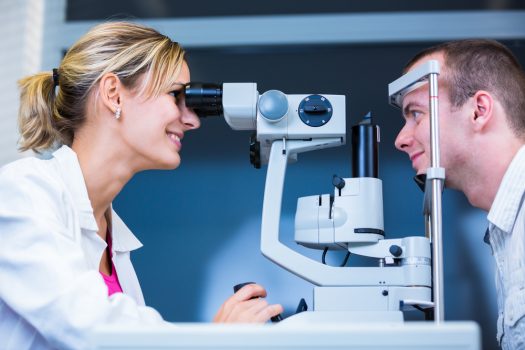The first picture that a person gets when he hears the word allergy is sneezing. However, the allergies not just affects the nose but can also affect the eyes to a great extent. Eyes are amongst the most vital parts of the body. However, if the eyes are itchy, red, watery or swollen, it can cause many problems in our lives.
If the eye allergies are severe, they can lead to multiple visits to your eye doctors or ophthalmologist. The eye allergies can even cause you to lose your eyesight if left untreated. The children are mostly affected by this condition, and most cases are seen in people before the age of 30. Both the environmental and the genetic factors can be responsible for the allergies. Here is everything you should know that could help you manage the symptoms before the condition worsens.

What are eye allergies?
An eye allergy that is also known as allergic conjunctivitis is the immune reaction of the eye as a response to coming in contact with an irritating component. The usual allergy-causing agents are dust, pollen, mites, feathers, pet dander, and few other indoor and outdoor agents.
The body has a defense mechanism that reacts to defend or protect the body from agents that could harm it like bacteria and viruses. The eye allergy is caused when the body detects a foreign agent in the eye and mistakes it for something very harmful and sets of a series of reaction. To fight away the agents, the immune system of our body releases certain chemicals.
The eyes get watery, red and itchy as a result of these chemicals. Eczema and asthma have also been associated with the presence of eye allergies. There are few over the counter medications that have proven to be helpful in mild cases, but the severe cases require treatment.
What causes the eye allergies?
- Eye allergies are also called ocular allergies and affect the delicate covering of the eye known as the conjunctiva.
- Pollens that come from grass, trees or weeds: They are known as seasonal allergies and are the most common type of agents. If your allergy is usually caused during certain seasons that have high pollen count, then the condition you are suffering from is as seasonal allergic conjunctivitis.
What Are Eye Allergies?
- Indoor allergens such as dust and pet dander: It is also known as chronic (perennial) conjunctivitis, and the eye allergies stay all around the year.
- Specific chemical agents, perfume or makeup, can also trigger allergies in the eye and are called contact conjunctivitis.
- Giant papillary conjunctivitis is the allergy to wearing contact lenses and can result in redness and sensitivity of the eyes.

How can the symptoms be spotted?
As soon as they eye comes in the contact of an allergen the immune reacts with the production of immunoglobulin E antibodies that results in the production of chemicals like histamine. The symptoms can be being at the same moment as the allergen comes in contact with your eye or it could take a two to four days in developing the symptoms. These are the symptoms that could help you identify an eye allergy:
- Red eyes
- Irritation of eyes
- Itchy eyes
- Teary or watery eyes
- Selling of the eyelids
- Sensitivity of the eye to light
- Sensation of soreness or burning
- Pain in the eye
Related Article: Macular Degeneration: Detect and Prevent this Eye Disorder
A stuffy, runny nose along with sneezing can also indicate the presence of allergy. Eye allergies usually cause temporary trouble and discomfort, but it doesn’t cause any permanent damage to the eyes. The blurred vision lasts temporarily in some people. The symptoms fade away on their sometime after the eye is no longer in contact with the causative agent. The eye allergies should not be confused with infection of the eyes. Infection usually affects only one eye, but both the eyes are affected in the case of allergies.
Treatment of the allergy
- Avoiding the triggering agents can be done by making specific changes in your environment.
- During the pollen periods, the windows should prefer to be kept closed, and the use of air conditioner should be done in the home or car.
- Use dehumidifier and mites proof covers at home.
- Use of over the counter products like artificial tears and decongestant eye drop can be helpful.
- Prescription medicines like allergy shots and other eye-drops are effective.
Lafayette Optometrist, Dr. Durocher, recommends that if you are suffering from any of these symptoms, it is safe to consult your eye doctor or optometrist to avoid a severe eye condition.
References:
- https://en.wikipedia.org/wiki/Allergic_conjunctivitis
- https://www.aao.org/eye-health/diseases/allergies
- http://opmt.com/education/allergies/

